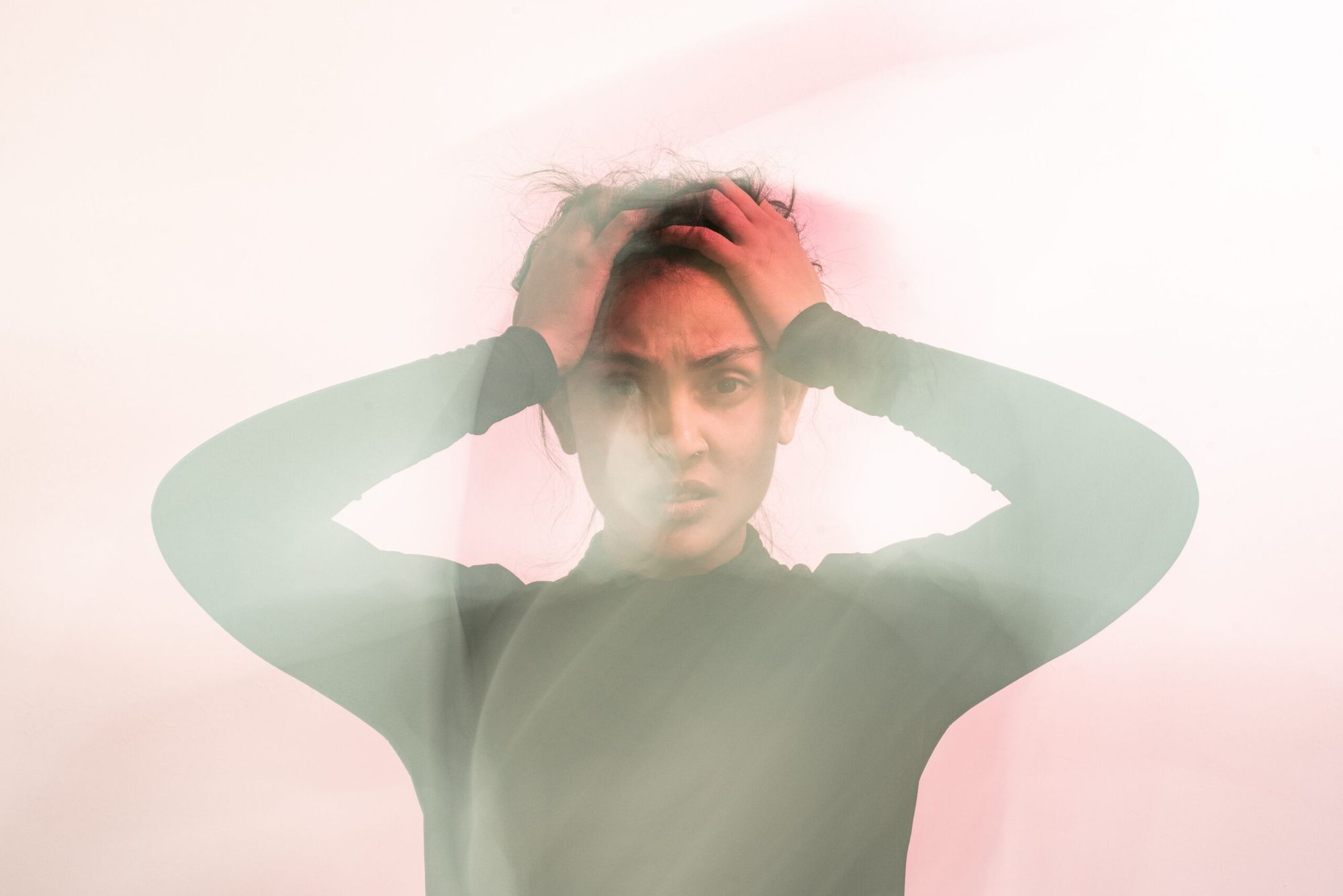
Certain types of therapy are known for being better than others when it comes to treating anxiety. The best types of therapy for anxiety are important to be aware of, since therapy is expensive and you want to ensure you’re getting the right type of help.
Anxiety is a feeling of emotional distress, unease, worry or fear, and it can become chronic or occur for no apparent reason. Chronic anxiety can have a serious impact on your quality of life, personal relationships, job performance, and mental health.
Whether you have chronic anxiety in the form of intrusive anxious thoughts, generalized anxiety disorder (GAD), social anxiety, a phobia, or post-traumatic stress disorder (PTSD), the symptoms of anxiety can be debilitating for some people.
If you suffer with anxiety, know that it can be managed and treated. The first step toward getting better is always to have your doctor refer you to a psychiatrist, so you can be properly diagnosed. Since there are many different types of anxiety disorders, it’s important to know what is causing your anxiety, and what type of anxiety disorder you have. It’s also crucial to understand which types of therapy for anxiety are best for you.
Therapy is a very effective treatment for anxiety, especially if you find the right therapist. Many people who suffer with anxiety go to therapy in addition to using natural remedies for anxiety such as exercise, CBD oil, kava kava, and nature. This works for many people, which means that not all anxiety sufferers find that they need prescription medication.
The Different Types of Therapy for Anxiety
The purpose of therapy is to process your anxious thoughts, learn coping strategies, and try to find out the root of your anxiety. In therapy, you can also learn one of the most effective coping strategies for anxiety, which is called self-regulation. This is when you learn how to regulate your own nervous system, which is key, since when you’re anxious you tend to have a dysregulated nervous system.
It is important to remember that anxiety disorders and the way they impact people vary greatly between individuals, and everyone has different severity of symptoms.
Therefore, you will often find that your therapy sessions are tailored according to the way in which your anxiety affects you, and the impact it has on your life. Your counselor or therapist will explore your options with you, and an ethical therapist will refer you to a different therapist who practices one of the other types of therapy for anxiety, if it’s not working out.
Below are some of the best types of therapy for anxiety, and why:

Cognitive Behavioral Therapy
Cognitive Behavioral Therapy (CBT) is the most common form of therapy for anxiety. It has been highly effective in the treatment of generalized anxiety disorder, phobias, and panic disorders, among others.
The process behind CBT is that your thoughts impact your emotions and behavior as opposed to your situation. The goal is to come to understand your thought process and behavior patterns so that the negative ones can be replaced with those that are realistic, effective, and helpful. Your therapist essentially becomes a coach for this.
It takes time and practice in order to achieve success with this form of therapy, and once you start to recognise your triggers and behaviors you can start to implement the healthy coping mechanisms that you have been taught in therapy.
Somatic Therapy
Somatic Therapy is a form of alternative therapy that has been used with great success for PTSD and other anxiety disorders. The primary focus of this therapy is to alter the trauma response to stress and other triggering situations. It helps a person to develop new ways to face their trauma, including the use of physical touch to regulate anxiety. It can involve:
- Breathing exercises
- Sensation awareness
- Physical exercise
- Massage
- Dance therapy
- Grounding exercises
Exposure Therapy
This is actually part of CBT, and it has been shown to be highly effective when treating phobias, SAD, and PTSD. The reasoning behind this therapy is that the best way to overcome something that you’re afraid of or anxious about is to face it.
This process involves you being slowly introduced to objects or situations that cause anxiety. It is done using a system known as systematic desensitization. There are three steps involved:
- Relaxation training to help you combat your anxiety
- Creating a list of your triggers, ranked by intensity
- Exposition to your triggers over a period of time until you become desensitized
The actual exposure to your triggers can be done in one of several ways. Your psychologist will be the one to determine the method, but these are the most common:
- Imaginal exposure where you are asked to vividly imagine your trigger
- In vivo exposure where you are asked to face your trigger in real life
- Virtual reality exposure where the above are combined. It’s especially good for PTSD
Dialectical Behavioral Therapy
Dialectical Behavioral Therapy (DBT) was originally used to treat Borderline Personality Disorder (BPD). However, it is now used to effectively treat a range of anxiety disorders. Its focus is on helping you to determine what a dialectal, or opposite, outcome looks like and learn how to change this perception into something more positive.
It teaches you to accept your anxiety while also working to change the way you think so that it has less of an impact on your life. You can look at it as learning to love the person you are while also trying to better yourself without altering your core self.
There are four key skills that are taught with DBT:
- Mindfulness
- Distress Tolerance
- Interpersonal Effectiveness
- Emotional Regulation

Acceptance and Commitment Therapy
Acceptance and Commitment Therapy (ACT) has shown to be effective at treating most anxiety disorders. At its core, it works by helping you to establish and recognise your values and goals in life before giving you the tools you need in order to act in a way that matches them. It isn’t massively common, but it can work well as an alternative to CBT.
Interpersonal Therapy
Interpersonal Therapy (IPT) is excellent for social anxiety and has a strong focus on social roles as well as relationships. You learn to identify interpersonal issues that you might have, such as unresolved grief and conflicts with those close to you, and help you to learn better social communication. It teaches you healthy ways to communicate and express yourself.
Art Therapy
Art therapy can be described as an experience-oriented form of therapy and one that doesn’t use verbal communication. It tends to involve the use of visual art to express emotions or practice mindfulness and relaxation. It can be used as a standalone therapy, but it is more commonly used in conjunction with CBT to allow for better emotional expression.
Types of Therapy for Anxiety: The Bottom Line
Finding the right therapist is not always easy. Even if you figure out which of the types of therapy for anxiety suits you best, you still need to find the right therapist. Give it a couple of sessions, and trust your gut. If it’s not the right therapist, try someone new. You need to connect with your therapist, feel as though they’re actively listening and asking questions, and understand what your problems are and what your goals are.
If your anxiety began after a specific trauma, you may want to find a therapist who also specializes in that type of trauma.
If physical touch tends to help regulate your nervous system, somatic therapy may be best for you. There are many types of therapy for anxiety, and you could even combine more than one. You could see a somatic therapist, and also seek out talk therapy with a counselor who specializes in trauma, or a CBT specialist.
Help is always available, as there are many qualified therapists and counselors out there with anxiety as one of their specialties. If you are struggling with anxiety (or any other mental illness) it is important to seek help.
Therapy sessions are a wonderful starting point, and can help you to make sense of your anxiety and learn how to quiet it. Anxiety can sometimes feel like it has control over your life, but you have the power to take back that control.
If you care about your health, get 500 personalized health reports from CircleDNA, which uses your DNA to inform you about your health.






